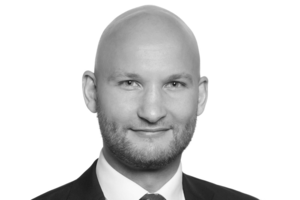Why big super's pseudo-SMSF won't deliverBY KRIS KITTO | FRIDAY, 7 MAY 2021 11:55AMAs the success of SMSFs boomed in the last decade, some industry funds rolled out self-directed or member direct investment options that allowed their members to invest (with ... Upgrade your subscription to access this article
Join the growing community of superannuation
professionals with unlimited access to our latest news, research and analysis of the industry.
Become a premium subscriber today. |
Latest News
APRA expects 'no cutting corners' with CPS230
APRA is warning superannuation funds "not to cut corners" when in it comes to getting their operational risk management in order as the landmark prudential standard CPS 230 comes into effect today.
Super on paid parental leave to reduce gender gap: ASFA
The introduction of superannuation contributions on paid parental leave (PPL) is set to boost women's retirement savings by $7200, according to new research from the Association of Superannuation Funds of Australia (ASFA).
Average super balance grows to $172k: ATO
The average superannuation balance grew 5% to $172,000 at the end of the 2023 financial year, new statistics from the Australian Taxation Office reveal.
MLC AM delivers real returns for members in FY25
Staying the course on listed equities amid tariff-induced market turbulence has led to MLC Asset Management achieving double-digit returns for the 2025 financial year and, more importantly, real returns for members, according to its investments chief.
Further Reading
Cover Story

Climbing to the top
DANIEL SHRIMSKI
MANAGING DIRECTOR
VANGUARD INVESTMENTS AUSTRALIA LTD
MANAGING DIRECTOR
VANGUARD INVESTMENTS AUSTRALIA LTD
Vanguard Australia managing director Daniel Shrimski is determined to propel the investment giant's superannuation product into the top 10 funds by assets under management by 2030. It's an audacious goal, even for a fund backed by the world's second largest asset manager. Andrew McKean writes.
























Thankyou Kris for your insights. To address your suggestion that big super funds pull money out of investment portfolios to cover future tax liabilities: in fact, they don't - they create an accounting provision for deferred taxes in valuing member accounts but this accounting liability is not backed by cash. It is essentially a gearing effect as the money remains invested to earn compounded returns until the tax is actually payable. This is really the same as SMSFs; it's just that the deferred tax liabilities are made explicit in the member account valuation. The point is that both types of funds can earn compounded investment returns until the tax actually has to be paid.
Just wanted to point out this article is inaccurate and probably misleading. Pseudo-SMSFs let each member who chooses to use them to accumulate unrealised gains just like an SMSF. Additionally some of them also allow members to transfer their investments in specie to the retirement phase and to directly benefit through the unrealised gain provision being removed boosting the balance available for retirement income.